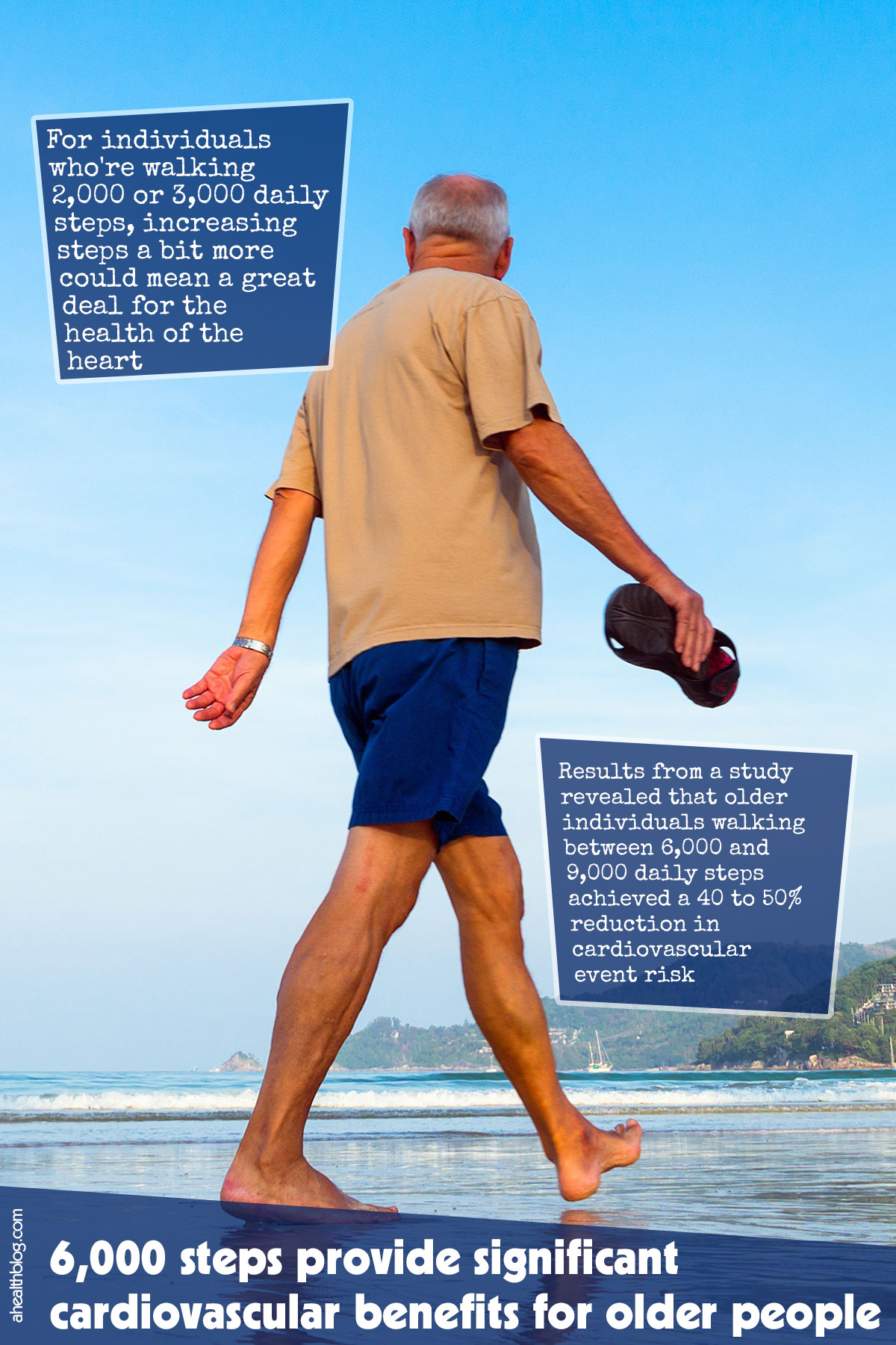Results from a study revealed that older individuals walking between 6,000 and 9,000 daily steps achieved a 40 to 50% reduction in cardiovascular event risk in comparison to individuals walking 2,000 daily steps.1✅ JOURNAL REFERENCE DOI: 10.1161/CIRCULATIONAHA.122.061288
The researchers observed a noticeably reduced risk of cardiovascular disease or cardiovascular event for individuals older than 60 over a follow-up of an average of 6 years. There was a progressively reduced risk when more daily steps were accumulated.
The researchers had previously shown in a meta-analysis of 15 studies that involved almost 50,000 individuals from 4 continents that more steps, even below the highly recommended “10,000 steps daily,” was linked to longevity benefits. They determined that walking 6,000 to 8,000 daily steps was associated with a reduced risk of all cause death in older individuals.
Although there seems to be an accumulative benefit for individuals walking more than 6,000 daily steps, motivating the least-active individuals to increase daily steps is probably the key health message.
The individuals who’re the least active can benefit the most. For individuals who’re walking 2,000 or 3,000 daily steps, increasing steps a bit more could mean a great deal for the health of the heart. Increasing from 6,000 to 7,000 steps and then to 8,000 steps is also beneficial, even though it’s a smaller, incremental improvement.
This meta-analysis of 8 studies involved over 20,000 individuals from around the world. No link between cardiovascular risk and daily steps was observed for younger individuals.
This is since cardiovascular disease is a disease of aging and often doesn’t manifest until an older age. Not many young to middle-aged individuals are going to develop cardiovascular disease following 6 years of follow-up.
The researchers didn’t find any significant connection with walking intensity beyond the total number of steps accumulated.




